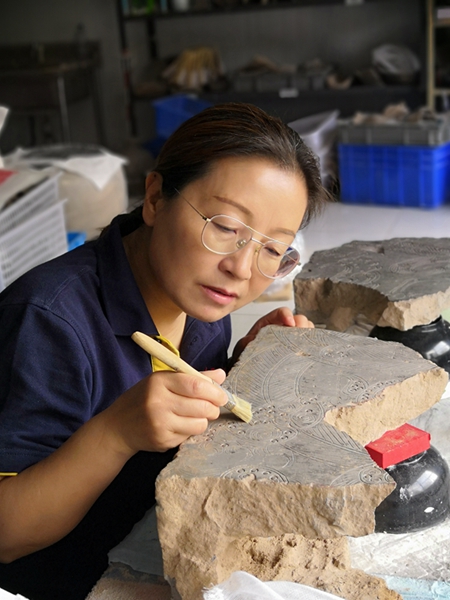

"Having studied the warriors for more than two decades, I encountered a bottleneck since I found my vision was limited. At that time, our country carried out a policy to reinforce efforts to protect cultural relics, and the excavation on the ancient Xianyang city began. It needed more professionals, so I applied to go there," says Xu.
"Studying an ancient city is much more difficult, and Xianyang is quite special since it was the capital of Qin state in the Warring States Period (475-221 BC) before Emperor Qinshihuang established the Qin Dynasty, and then it was the capital of the country. The two stages led to changes in its scale and construction, which made it difficult for us," she adds.
Xu and her colleagues' work on the city has enhanced their understanding of the Qin people, as she describes in the book. For example, she discovered a tuning peg from a bone artifact site which shows craftsmen might have played musical instruments in their free time.
"Historical documents tell us the Qin people were good at fighting, and thus they left me an impression of being sturdy and combative. But such a discovery reveals their peaceful side with a taste for life," says Xu.
"History books often tell us stories of famous people, but ordinary people are generally invisible. Archaeological work can show us the life of ordinary people in the past, and their story strikes a chord in my heart," Li says.
Besides her daily field work, Xu has been active in promoting archaeological knowledge to +the public. She has opened an account on Sina Weibo, a social networking service, to communicate with online users.
"I find people's understanding of archaeological work has improved a lot over the years. Their interest has shifted from some objects to their social background.
"I can also benefit from such communication. Some people can provide their unique angles to view archaeological discoveries, and they inspire me a lot," says Xu.